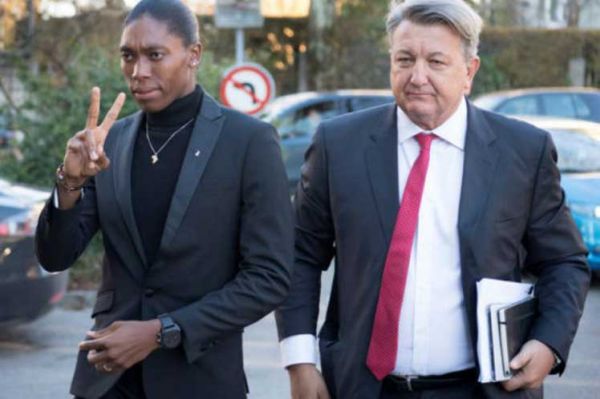
The 800m Olympic and World Champion had filed an appeal against IAAF’s decision on limiting testosterone levels in women
South African runner Caster Semenya attacked the International Association of Athletics Federations (IAAF) again Monday at the start of her appeal against limiting testosterone levels in women.
The 800m Olympic and World Champion accused the body of breaking confidentiality on the opening day of her appeal against the new regulation, which affects female athletes who naturally produce an excess of this hormone.
The new regulations would force women with these characteristics to reduce their levels by chemical methods, something which has given rise to enormous controversy.
Semenya, through its lawyers, sent a statement criticising the IAAF for revealing a roster of experts who support its position just on the day the Court of Arbitration for Sport (CAS) began hearings of the case, behind closed doors.
Arbitration procedures are subject to strict confidentiality clauses and this information should not have been disclosed. Ms Semenya believes that the IAAF press release is a clear breach of the confidentiality provisions enforced in an attempt to influence public opinion’, the text states.
The law firm representing the South African said that the athlete did not replicate that information to comply with its ‘confidentiality obligations’.
However, her legal representatives filed a petition with the CAS in response, authorizing her to also disclose the names of experts who support her case.
Consequently, the legal entity approved the request and the list will be disclosed Tuesday, although it reiterated that, from now on, the procedures are confidential and information about the case should not be publicly disclosed.
Since the new IAAF regulations were announced last year, the Olympic monarch in 2012 and 2016 has spoken out against her and, with the support of her country’s government, has taken legal action to prevent her from coming into force.
Semenya, a few days ago, who was also the universal champion in 2009, 2011 and 2017, now present in this city for the procedure, said that ‘I just want to run naturally, as I have done since I was born’.
She also added that ‘it’s not fair to be asked to change, it’s not fair for people to ask who I am.
For his part, IAAF President Sebastian Coe, a former British long-distance runner, said Monday before the arbitration began that ‘athletics is why we are here, to defend it’.
The rules we are introducing are to protect the sacredness of a legal and open competition,’ the 1500m Olympian in Moscow-1980 and Los Angeles-1984 added to his statement.
The regulations IAAF intends to apply would require athletes with hyperandrogenism to keep their testosterone levels below 5 nanomoles per liter of blood for at least six months before competing at distances between 400 and 1,500 meters in international competitions. Semenya has testosterone levels similar to those of a male specialist precisely in the affected distances and, if the measure were applied, would have to be medicated for competition.
For this reason, the athlete alleges these restrictions are discriminatory and violate human rights.
 Escambray ENGLISH EDITION
Escambray ENGLISH EDITION





Escambray reserves the right to publish comments.